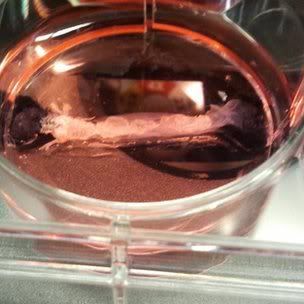We have now reached a new plane of science as the Dutch have managed to begin creating an artificial hamburger.
Dutch scientists are producing strips of muscle tissue using stem cells, as we speak, in order to create the first hamburger grown in a lab. The estimated end to this project is later this year, but don’t be expecting them in shops soon as the cost of this project is a gigantic £200,000.
But why are they wasting their time trying to create a hamburger? No, it’s not to challenge the global fastcrap shack that is McDonald’s, but it’s to help with the problem of an increasingly large and hungry population. And you never know, it may even prove to be an alternative to killing animals.
Professor Mark Post, while at a major science meeting in Canada. touted the possibility of introducing synthetic meat into wider society by saying that the concept could eventually decrease the footprint of meat on the environment by an incredible 60%.
Professor Post, who is running the experiment with his group at Maastricht University in the Netherlands, is carrying out the experiment by growing pieces of off-white muscle which are 1cm in width, 1mm thick, and roughly 2cm long in small bowls.

It’s expected that the strips will then be soaked with fat, which has also been artificially grown, and blood to grow a hamburger. The hamburger is expected to be completed by autumn of 2012.
The professor also commented that he was attempting to get Heston Blumenthal, the celebrity chef, to cook it for him. But he did say that the burger will taste quite bland as flavour is not really the priority at the moment.
Despite the high price, Professor Post did claim that he was confident that as production lines are sorted out the cost would come down. So it’s possible that synthetic meat could become a resource of the future. And this is incredibly timely as estimates say that the world’s food production will need to double within the next half-century in order to keep up with demand.
Professor Sean Smukler of the University of British Columbia also stressed the importance of this experiment as he claims that farmers will find it particularly difficult to keep up with demand as the amount of farmable land on the planet has been reduced dramatically.
At the moment the future looks bright when it comes to synthetic meat, as Professor Post confidently asserts that it will become more efficient than meat produced in a natural way. Currently there is an efficiency rate of 15% when it comes to producing natural meat, and synthetic meat is aiming for 50%.
The President of Earthsave Canada, David Steele, wasn’t so enthusiastic about the project, though. He claimed that instead of creating synthetic meat, which could be unhealthy due to the number of chemicals required to stop it from rotting, people could just eat less meat.
Now, while this would be a viable option in an ideal world, we have to remember one thing: most people couldn’t care less about the problems of the world unless it’s having a direct effect on them. It’s harsh, but people are generally unwilling to compromise on their own quality and luxury unless the problem is shoved directly in their faces.
And all of this means that the Dutch could be on to a winner here. The Germans may have had the Hamburger named after one of their cities, but it looks like their cultural archrivals have revolutionised it.
